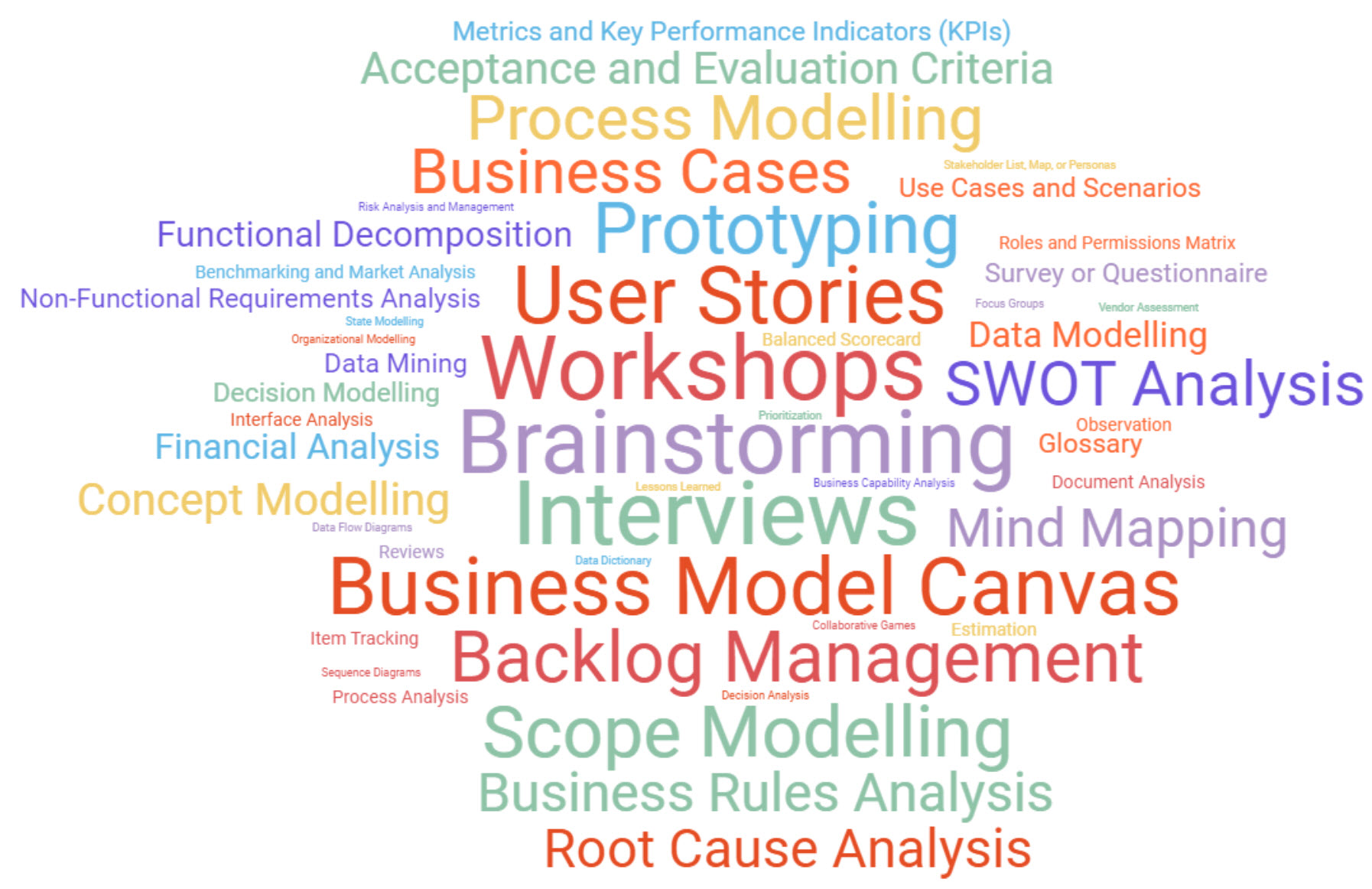A Mindset Without Skills is Just Frustrating
Receive free IIBA updates and exclusive content!
Em português
The importance of mindset and listening combined with learning the right skill sets prompted Fabrício Laguna aka the Brazilian BA to further explore the business analysis mindset. This blog is republished from Fabrício’s LinkedIn page. He playfully uses a musical example to explain how to practice and develop a business analysis mindset and put it into action to create the career you want.

I woke up inspired this morning and decided I would compose a song. I love music (who doesn’t?) and I believe music can touch people's emotions in a way that other communication formats just can’t reach even close. So, I had good motivation, a positive attitude, and willingness. But of course, those were not enough. I can’t compose because I don’t have the necessary skills for that.
If you have seen some of my last works (thebrazilianba.com) you may know I’m constantly advocating that we must think about Business Analysis not as a role, but as a Mindset. Not just for professional Business Analysts, but available for any professional who seeks better business outcomes. If my message made you think that this mindset could be developed independently of the skills, I’m sorry but you got it wrong, it may not.
A musical mindset, for example, is uniquely developed by lots and lots of study and practice. There is no fast track. No magic pill can implant that into your mind. A weekend workshop with your preferred artist won’t be enough. It just comes after a lot of effort.
A maestro can listen to a whole orchestra and identify each one of the instruments being played and point that one that is out of tone. A jazz musician can improvise chords and create a beautiful song without any sheet music. At the end of his life, Beethoven was deaf but still could compose and write entire symphonies only listening to the instruments in his head, using his imagination. Wow! That’s what I call a great musical mindset. Unfortunately, that’s not my case and I just can’t compose any song.
Before getting back to the business analysis mindset, let me bring to light an important concept: a mindset is not binary. It’s not something you DO have or DON’T have. It must be understood as a scale. Taking my example, I have a musical mindset and probably I am more skilled than most people. I can play guitar by reading chords and even sing not so badly. Good enough to have fun at a small party with friends or entertain the participants of a business analysis conference with some musical examples in a presentation, but very far from a professional musician. There is an ocean between me and Beethoven, but we are talking about the same mindset. Just in different scales.
A mindset is a particular way of thinking shared by a group of people that influences their attitudes and opinions. It is a more abstract concept than simply knowledge or experience that guides the way they sense and respond to the context around them.
Just as I can work to improve my musical mindset, you can develop a Business Analysis Mindset. The path is not very different: study and practice. That is why techniques are so important. It is through the study and practice of business analysis techniques that you will develop your mindset. The more business analysis techniques you master, as stronger your business analysis mindset will be.
A good musician feels his instrument as part of his body. A guitar player doesn’t think about the strings he must pull one by one. He just plays them without thinking they are there. Almost automatically like learning to walk and talk. That is not the case for a beginner, who must do every movement very consciously.
Learning a business analysis technique works the same way. When you are a beginner, you must follow the script and be conscious of every movement, read the instructions twice, fill out the templates, and get some mentoring to understand what you may improve or correct. After a lot of practice, that becomes your mindset. Templates and instructions become a part of what you use and soon you don’t even think about them anymore. You just automatically play.
This is a list of the 50 techniques you can find in BABOK® Guide v3. There are many more you may find out there to develop your business analysis mindset. (New ones are always coming.)
Business Analysis Techniques

With a well-developed business analysis mindset, you may work as a professional business analyst. Or you may simply use your business analysis mindset as a differentiator in your carrier as I use the musical mindset in mine.
I strongly advise any professional to develop the business analysis mindset. In fact, business analysis should be included as a discipline in the curriculum of many professionals such as Engineers, Architects, Administrators, Lawyers, Medics, and Nurses.
Business analysis professionals may choose a single technique they like the most (or a small group of them) and become an expert on that. No problem with specialization. It is an option similar to a professional drummer who can’t play the piano. Although it would be useful to have a general knowledge about the musical scale.
Other business analysis professionals may choose to develop their selves more like maestros, who must know all instruments and have a deep understanding of musical theory. They are not supposed to be experts in any specific technique and can always count on other professionals, when necessary, but they understand the whole using their well-developed mindset.
Summarizing the main topics covered here
- There is no business analysis mindset without business analysis skills.
- Every professional should develop a business analysis mindset.
- To develop a business analysis mindset, one must learn and practice business analysis techniques.
- Business analysis professionals will be more and more valued and diversified as the business analysis mindset becomes more popular
Are you interested in joining a community of like-minded professionals? Unlock your business analysis potential and grow your career with IIBA Membership. Network with your local community, attend complimentary events worldwide, use tools like the Career Action Guide, and more.
Republished from Fabrício Laguna’s LinkedIn page on 02/2022.
About The Author:

Fabricio Laguna, CBAP, AAC, CPOA, PMP, MBA AKA the Brazilian BA is a Business Consultant, Teacher, Professional Speaker and is IIBA Brazil Chapter president.
Fabrício is the author and producer of videos, articles, classes, lectures, and playful content, he can explain complex things in a simple and easy to understand way.
He has over 20 years' experience working with business analysis, methodology, solution development, systems analysis, project management, business architecture and systems architecture. Watch videos of Fabricio the Brazilian BA on YouTube.



